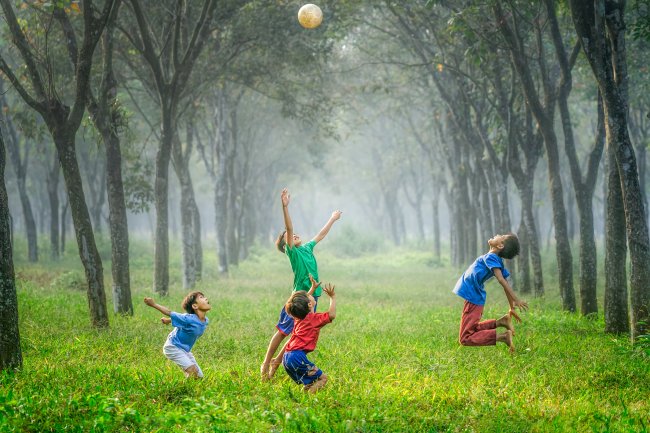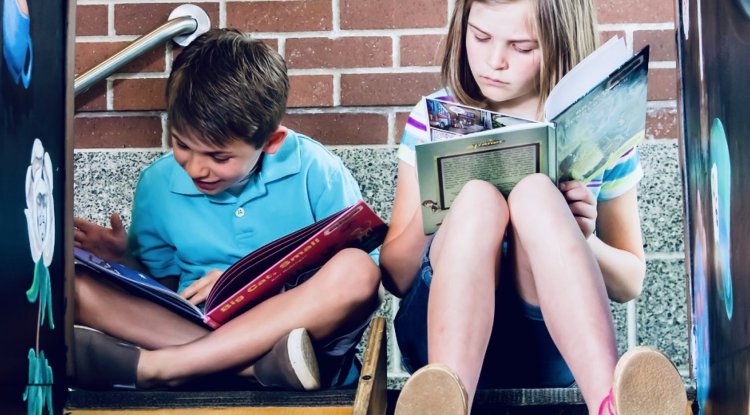For Parents
5 Social Skills Every Child Needs
- Mar 1, 2022
- 0
- 1906

It’s your child’s first day of school, and you’re brimming with excitement. But there’s a niggling question in the back of your mind - will they get along with the other children?
The truth is, your child’s ability to interact well depends heavily on how developed their social skills are. Yes, the term ‘skills’ might be overkill for a three-year-old toddler, but there’s no better way to describe it. In essence, social skills are a set of skills that help children join in conversations, ask for help, develop lasting friendships, collaborate with peers, and so much more.
Ever heard of the phrase ‘man is a social animal’? Whoever said it was not kidding! Us humans thrive on human connection, and the same goes for your children. From learning how to play without mom and dad to meeting teachers and other kids, your child will inevitably face many opportunities for social interaction.
With each interaction, they will subconsciously pick up social rules, like “you shouldn’t be rude to others” or “do not take what is not yours.” Apart from this, your child will also pick up skills such as listening, communicating, sharing, etc. This is what will set the foundation for a well-rounded personality.
But, how do you decide which social skills to focus on? Here are the top five skills that can help your child in social settings.
1. Communication
Initiating and sustaining conversations can be tricky; and children often struggle with this. By helping them develop good communication skills, you are enabling them to express themselves and interact with their peers in a polite and respectful manner.
2. Empathy
Your child is bound to run into many many types of people every day. But don’t you think it’s important for them to understand the similarities and differences between their lives and those of people they meet? This is where empathy comes in. An empathetic child can step into someone else’s shoes and understand their feelings. And this is really important for healthy social interaction. It isn’t easy to help your child develop this skill. The best method is for you to show it in action. When they see you empathising with others, they will feel like doing it too!

3. Problem-Solving
Your little one may face a variety of problems every day. A dog might eat their homework or the Internet could conk off at an inopportune moment. But it’s not the problem that matters; it’s how they solve it. Make it a point to teach your child problem-solving strategies like brainstorming and evaluation. There are also a tonne of fun skill development activities like the Human Knot and Quirkle.
Poor problem-solving skills can result in your child avoiding the problem completely. This can create larger issues later in life. So, help your child identify problems they’re facing, suggest solutions, and implement them!
4. Expressing Feelings
Children deal with complex feelings, just like adults. Anger, joy, frustration - it’s all part and parcel of being human. But some children find it difficult to open up and talk about their feelings. In such cases, they might choose to express these emotions through actions - which can lead to complete chaos. To avoid this, you can encourage them to express their feelings more. Heap on the praise whenever they do, and it will soon be second nature to them.
5. Sharing
We’ve all heard the phrase ‘sharing is caring’. It’s probably one of the first things we learnt as a child. Finding friends becomes super easy for children who are nice enough to share their things. Being generous and kind are important values to teach your children. And both of them begin with sharing.
It’s a big-BIG world! But with small steps, you can help your child develop the social skills they need to thrive in it. All you need is a little patience; and all your child needs is a little practice.
Tags
Add Comment
Related Blogs

For Parents
Five Cool Science Experiments Your Kids Can Conduct At Home
- Sruthi Sah...
- Aug 22, 2022
- 0
- 1406
Popular Blogs

Tips for Educators
3 Tips To Apply Classical Conditioning In Classrooms
- Natasha Di...
- Apr 25, 2022
- 0
- 21939

Understanding Concepts
4 Reasons Why Skill-Based Learning Is Important For Students
- James Coop...
- Mar 14, 2022
- 0
- 11265

For Parents
Everything You Need To Know About STEAM Education As A Parent
- James Coop...
- Mar 1, 2022
- 0
- 11191












